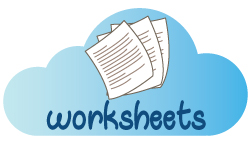What Is an Antonym? | Definition & Examples
- English Lessons >
- Antonyms
Overview of Antonyms:
- Introduction to Antonyms
- What Are Antonyms?
- Antonyms - Video Lesson
- Examples of Antonyms
- Antonyms and Synonyms
- Types of Antonyms
- Complementary Antonyms
- Relational Antonyms
- Graded Antonyms
- Antonyms Are Easy
- Forming Antonyms with the Prefix Un-
- Forming Antonyms with the Prefix Dis-
- Forming Antonyms with the Prefix In-
- A Handy List of Antonyms
- Antonyms - Quiz
Introduction to Antonyms
We are not always excited, are we? We are sometimes bored too. When we are no longer hungry, we feel full. Antonyms, or words with nearly or completely the opposite meanings, have their own unique place in any language. If we have a great stock of antonyms, we can communicate with far more elan and aplomb.
What Are Antonyms?
"You forget what you want to remember, and you remember what you want to forget."
- Cormac McCarthy, The RoadAntonyms are words that have the opposite meanings. The term "antonym" has its origin in an Ancient Greek word "antonumia", which means "counter name".
Examples of Antonyms
good – bad
before – after
early – late
exterior – interior
doctor – patient
bitter – sweet
triumph – defeat
Antonyms and Synonyms
Antonyms are opposite words. Synonyms, on the other hand, are words that have the same or different meanings.
Examples:
beautiful – pretty (synonyms)
beautiful – ugly (antonyms)
complex – intricate (synonyms)
complex – simple (antonyms)
praise – applaud (synonyms)
praise – criticize (antonyms)
A useful tip: In the above examples, you are likely to have observed an important thing: each word in an antonyms/synonyms pair is from the same part of speech. For instance, "praise" is a verb, and so is "applaud". "Complex" is an adjective, and so is "simple".
Types of Antonyms
There are three types of antonyms: complementary antonyms, relational antonyms, and graded antonyms.
Complementary Antonyms
Complementary antonyms are absolute opposites. In other words, each antonym in a complementary pair is independent and can exist without the other.
Examples:
boy – girl (A boy can exist without a girl and vice versa.)
day – night
male – female
Relational Antonyms
Relational antonyms are closely related antonym pairs. Each of the two words must exist; or else, they won't be antonyms of each other.
Examples:
above – below ("Above" doesn't exist without "below".)
front- back
doctor – patient
Graded Antonyms
Graded antonyms are two words indicating a specific level in a large scale of comparison. Each word from the scale varies from the other in terms of the degree or intensity of meaning.
Examples:
Happy, pleased, exhilarated, content – sad, gloomy, sorrowful, melancholy
fat, heavy, bulky, obese - slim, thin, lean, slender, feeble
The words denoting joy from the list: happy, pleased, exhilarated, and content are all different from each other in what degree of joy each word conveys. Similarly, each word indicating sadness: sad, gloomy, sorrowful, and melancholy belongs to a particular intensity in the scale of sadness.
Antonyms Are Easy
The best aspect of antonyms is that you don't always need to refer to a dictionary or thesaurus to find them. Often, simply adding a prefix such as dis-, mis-, un-, or -in will do the trick. Here are a few examples.
Forming Antonyms with the Prefix Un-
able – unable
available – unavailable
foreseen – unforeseen
Forming Antonyms with the Prefix Dis-
like – dislike
please – displease
honest – dishonest
Forming Antonyms with the Prefix In-
formal – informal
justice – injustice
active – inactive
A Handy List of Antonyms
Take an Antonyms Quiz Now!

Hone your skills using our free printable Synonyms and Antonyms Worksheets.

